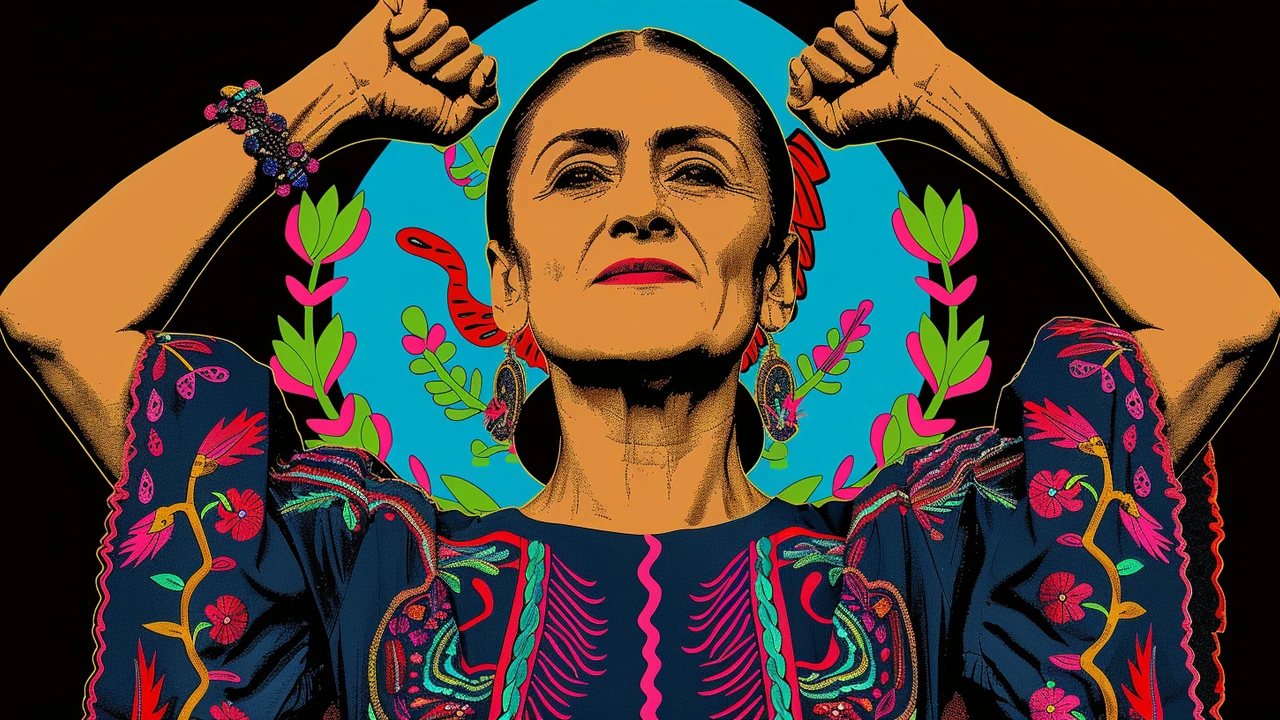Mexico's Historic Election: Claudia Sheinbaum Becomes First Female President and Climate Scientist Leader
 Jun, 3 2024
Jun, 3 2024
Mexico Elects Claudia Sheinbaum: A New Dawn for Climate Politics
In a landmark decision, Mexico has chosen Claudia Sheinbaum, a noted climate scientist, to serve as its next president. This election not only marks the first time a woman has been elected to lead the nation, but also stands out as Sheinbaum is the first climate scientist to take the helm of a major country. Her background as an energy engineer and her substantial contributions to the Intergovernmental Panel on Climate Change (IPCC) reflect her deep understanding of environmental issues. She is scheduled to assume office on December 1, with her term extending until 2030.
Sheinbaum's campaign was distinguished by a strong commitment to environmental sustainability. Among her top priorities is an ambitious plan to invest nearly $14 billion in clean energy initiatives. She emphasized the need to accelerate the adoption of renewable energy sources, including substantial enhancements to electric buses and trains. Through these measures, Sheinbaum seeks to guide Mexico toward a greener future, reducing its carbon footprint and combating climate change.
Challenges on the Horizon
Despite her compelling vision and credentials, some experts are cautious about Sheinbaum's prospects for enacting her proposed reforms. Her close association with the outgoing president, Andrés Manuel López Obrador (AMLO), who rolled back several climate-focused policies, raises concerns about her ability to pivot Mexico towards sustainable energy. Additionally, Sheinbaum's known aversion to private-sector energy investments could further complicate her efforts to transform Mexico's energy landscape.
Sheinbaum's tenure as the mayor of Mexico City offers a mixed record on environmental issues. While she did prioritize solar energy projects, critics argue that she did not sufficiently address the city's persistent air pollution problems. This scrutiny has led some climate scientists and political analysts to question her capacity to deliver on broader national promises.

A Vision for Clean Energy
Nonetheless, there is optimism about Sheinbaum's leadership potential. Armed with her extensive scientific background and newfound political independence, there is hope that she can chart a clear and actionable course for reducing the country's emissions. By leveraging her expertise and commitment to science-based policies, she could also spearhead Mexico's efforts to adapt to the impacts of climate change.
Her outlined efforts to boost clean energy involve an impressive array of projects. Foremost among these is a substantial increase in investments for renewable energy sources such as solar, wind, and hydro power. This shift aims to decrease Mexico's reliance on fossil fuels, which currently dominate the energy sector. Sheinbaum has expressed a particular interest in expanding the country's solar power capacity, recognizing Mexico's potential as a leader in harnessing solar energy given its abundant sunshine.
Investment and Infrastructure
Sheinbaum's plans for infrastructure development extend beyond mere energy generation. Her focus on electric public transportation highlights her commitment to sustainable urban planning. Overhauling and expanding Mexico's fleet of electric buses and trains could significantly reduce emissions, especially in densely populated urban areas. This aspect of her policy could also improve public health by reducing air pollution, providing an immediate benefit to the population.
Moreover, she plans to implement energy-efficient technologies and practices across various sectors, from residential buildings to industrial facilities. Her aim is to foster a culture of sustainability that permeates all levels of society. By incentivizing energy-saving measures and supporting green technologies, she hopes to reduce the overall energy demand and make the existing energy use cleaner and more efficient.

Obstacles and Opportunities
Despite such forward-thinking proposals, Sheinbaum faces significant obstacles in achieving her vision. The existing political landscape, shaped by AMLO's policies, poses a major challenge. Reversing some of the previous administration's decisions will require not just political will, but also widespread public support and cooperation from various stakeholders. Given Mexico’s economic reliance on fossil fuels, any rapid shift towards renewable energy will need careful management to avoid economic disruptions.
In addition, Sheinbaum's stance against private sector involvement in energy generation is a double-edged sword. While it aligns with her ideological beliefs, it could limit the available resources and technological innovations crucial for large-scale renewable projects. Crafting a balanced approach that leverages both public initiative and private sector efficiency might be essential for realizing her ambitious goals.
International Collaboration
One avenue Sheinbaum might pursue is strengthening international collaboration on climate issues. By partnering with other nations committed to sustainability, she could share knowledge, technology, and financial resources. Such alliances can also provide a platform for Mexico to participate in global conversations on climate policies, potentially influencing broader international regulations and agreements.
The role of multilateral organizations such as the United Nations and the World Bank could be instrumental in supporting Mexico's green transition. These entities can offer funding, technical assistance, and policy advice. Establishing robust international connections could amplify the effectiveness of Sheinbaum's domestic policies and broaden their impact.

The Road Ahead
As Claudia Sheinbaum prepares to take office, the world watches closely. Her presidency symbolizes a critical juncture for Mexico and possibly for the global climate movement. Should she succeed, her tenure could serve as a model for integrating scientific expertise into national leadership, setting a precedent for how countries can effectively address climate change through informed policy-making.
Her leadership will undoubtedly be a test of how scientific principles can be balanced with political realities. It will require her to navigate complex terrain, making tough decisions that may provoke resistance from various sectors. Nonetheless, the stakes are too high to shy away from bold action. The actions taken by her administration could greatly influence not only Mexico's future but also global efforts to mitigate climate impacts.
In summary, Claudia Sheinbaum's presidency heralds a potentially transformative era for Mexico. Her experience and vision could provide the impetus needed to shift the country towards a sustainable future. Yet, this journey will not be without its hurdles. The balance between ambition and pragmatism will be key as she works to fulfill her promises in the years to come.